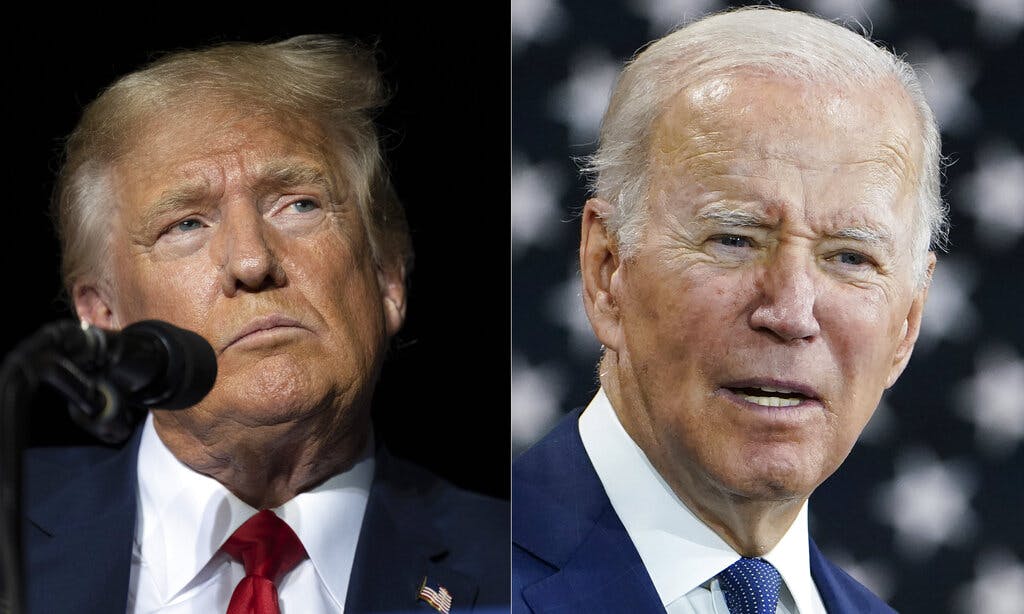Who’s In Charge — Truth Be Told — of the Prosecution of Trump?
In the plain language of the Constitution, the president is the one ultimately in charge of what is done in his stead by the officers he appoints or their subordinates.

Who’s in charge of the prosecution of President Trump? We ask because the New York Times is reporting that House Republicans have been suggesting “falsely” that President Biden, “not a grand jury made up of American citizens,” had charged him with crimes as part of a political vendetta. As it happens, we have been making a similar suggestion — that this all goes back to Mr. Biden. And we reject the notion that it is false.
It’s not our intention to cast aspersions on the Timesman, Luke Broadwater, whose byline appears over the report quoted above. He’s a Pulitzer Prize winner and is no doubt a fine newspaperman. There is, though, a view — accurate in our estimation — that all actions by the executive branch can be, and even must be, laid at the desk of the president. Some call this the “theory” of the unitary executive. We call it the plain language of the Constitution.
It appears in Article II. It’s preceded, of course, by Article I, which begins with this sentence: “All legislative Powers herein granted shall be vested in a Congress of the United States, which shall consist of a Senate and House of Representatives.” It goes on to provide the formulas under which the legislative powers are now shared among 535 persons, representatives and senators. Article I grants them certain powers that it carefully enumerates.
Article III creates the judicial branch of the government. It begins with this celebrated sentence: “The judicial Power of the United States, shall be vested in one supreme Court, and in such inferior Courts as the Congress may from time to time ordain and Establish.” It goes on to make clear that the judicial power is shared among the Chief Justice of the United States and such other judges of the Supreme Court and other courts as Congress might create.
Article II, though, is different. It begins with this immortal sentence: “The executive Power shall be vested in a President of the United States of America.” That’s it. The Executive is the only branch whose powers are vested entirely in one individual. The article goes on to require that the president — and the president alone — “shall take Care that the Laws be faithfully executed.” That’s the prosecutorial and law enforcement power.
This means that prosecutorial discretion derives from, and can’t be divorced from, the unitary power of the executive. It was James Madison who warned “Vest this power in the Senate jointly with the President, and you abolish at once that great principle of unity and responsibility in the Executive department which was intended for the security of liberty and the public good.” He was referring to the ability to fire subordinate officers.
That note was echoed in a Supreme Court case from 1926. In Myers v. United States, the court described “that unitary and uniform execution of the laws which Article II of the Constitution evidently contemplated in vesting general executive power in the President alone.” Those words were written by Chief Justice Taft, who went so far as to say that the president could remove even those officials “who perform duties of a quasi-judicial character.”
The principle of the unitary executive was in recent years articulated with the most conviction and eloquence by Justice Atonin Scalia. Writing in fiery dissent in Morrison v. Olson, The Great Scalia observed that the “purpose of the separation and equilibration of powers in general, and of the unitary Executive in particular, was not merely to assure effective government but to preserve individual freedom.”
Which brings us back to the business about “falsely.” It’s one thing if the Times wants to dispute the principle of the unitary executive or to defend the prosecution of Mr. Trump. It’s another thing, though, to brush off, en passant, the idea that the president is the one ultimately in charge of what is done in his stead by the officers he appoints or their subordinates. Or to suggest that Mr. Biden, or any other elected president, is an apolitical bystander.

